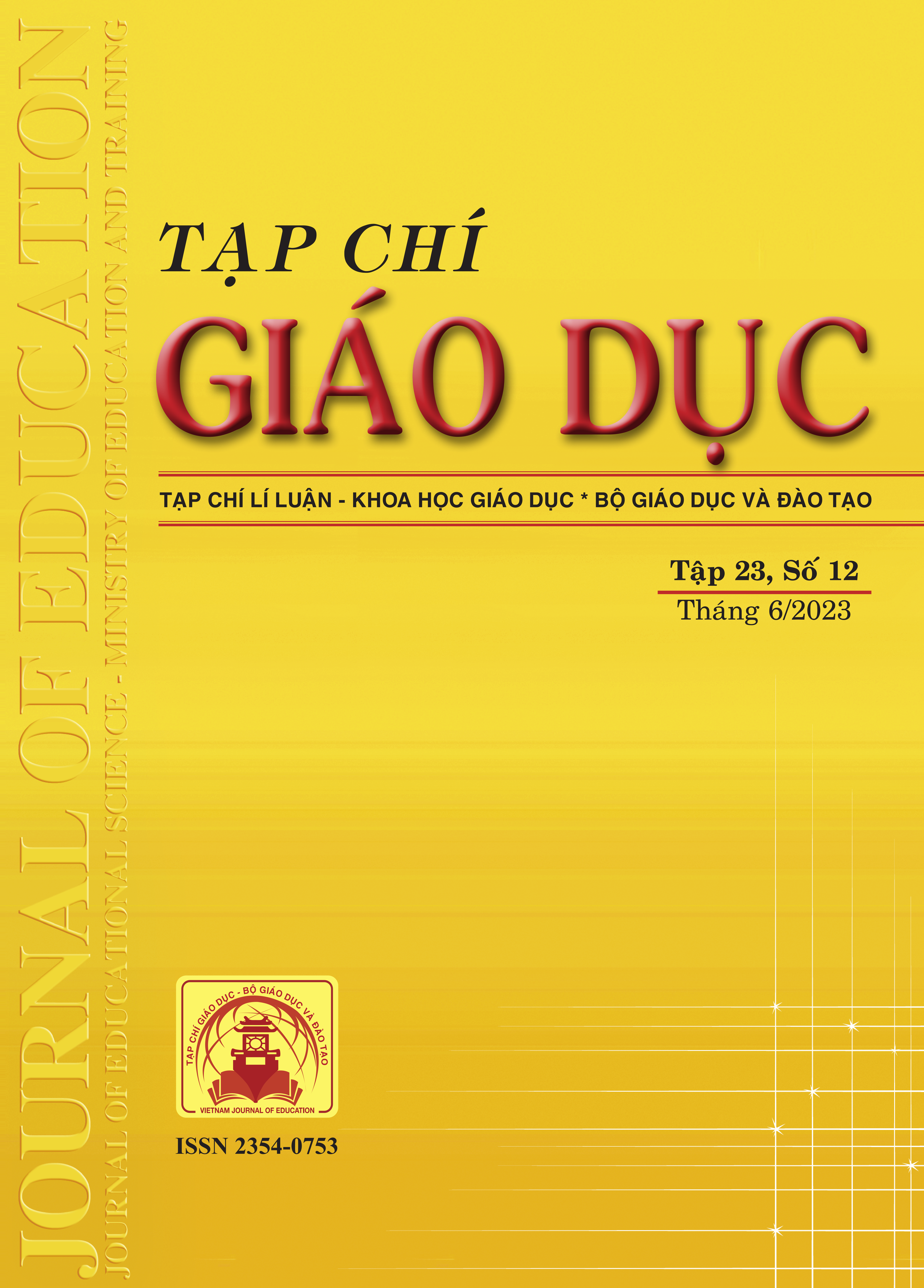Các yếu tố ảnh hưởng đến “Liêm chính học thuật” của sinh viên trong bối cảnh chuyển đổi số tại các trường đại học
Tóm tắt
Digital transformation has become a major topic in recent years which seems to make an appearance in every field, especially education. Universities with their advantages of resources have taken a lead in adopting technology in order to enhance their academic quality. Despite the undeniable merits of the changes, there are some emerging issues, one of which is academic dishonesty. This study uses the fraud triangle theory and the expanded theory of planned behaviors to propose the theoretical framework. After processing and analyzing the primary data with a sample size n = 523, the final model of 5 factors affecting college students’ academic integrity in the educational digital transformation was proposed, including Opportunity, Pressure, Rationalization, Lack of self - control and Perceived Behavior Control. The article provides a scientific reference on factors affecting college students’ academic integrity and recommendations from the perspectives of institutions, families and students so as to alleviate academic cheating.
Tài liệu tham khảo
Ajzen, I. (1991). The theory of planned behavior. Organizational behavior and human decision processes, 50(2), 179-211.
Brownell, H. C. (1928). Mental test traits of college cribbers. School & Society, 27, 764.
Comas-Forgas, R., Lancaster, T. M., Calvo-Sastre, A., & Negre, J. S. (2021). Exam cheating and academic integrity breaches during the COVID-19 pandemic: An analysis of internet search activity in Spain. Heliyon, 7(10), e08233. https://doi.org/10.1016/j.heliyon.2021.e08233
Cressey, D. R. (1953). Other People’s Money: A Study in the Social Psychology of Embezzlement. Glencoe: The Free Press.
Đặng Hùng Vũ, Nguyễn Thành Long (2021). Đánh giá liêm chính học thuật của sinh viên qua nhận thức của sinh viên về môi trường học thuật và hành vi không trung thực học thuật. Tạp chí Khoa học, Trường Đại học Mở Thành phố Hồ Chí Minh, 16(1), 46-63.
McCabe, D. L., & Trevino, L. K. (1997). Individual and contextual influences on academic dishonesty: A multicampus investigation. Research in Higher Education, 38, 379-396.
Muhammad, A., Ghalib, M. F., Ahmad, F., Naveed, Q. N., & Shah, A. (2016). A Study to Investigate State of Ethical Development in E-Learning. International Journal of Advanced Computer Science and Applications, 7(4). https://doi.org/10.14569/ijacsa.2016.070436
Nonis, S. A., & Swift, C. O. (2001). An Examination of the Relationship Between Academic Dishonesty and Workplace Dishonesty: A Multicampus Investigation. Journal of Education for Business. https://doi.org/10.1080/08832320109599052
Thủ tướng Chính phủ (2020). Quyết định số 749/QĐ-TTg ngày 03/6/2022 về việc phê duyệt chương trình Chuyển đổi số quốc gia đến năm 2025, định hướng đến năm 2030.
Trần Thị Út, Huỳnh Thạnh, Nguyễn Thị Thanh Hòa (2016). Vấn đề liêm chính học thuật trong sự nghiệp “trồng người”. Tạp chí Khoa học, Trường Đại học Sư phạm Thành phố Hồ Chí Minh, 2(80), 54-61.
Yu, H., Glanzer, P. L., & Johnson, B. R. (2021). Examining the relationship between student attitude and academic cheating. Ethics & Behavior, 31(7), 475-487. https://doi.org/10.1080/10508422.2020.1817746
Tải xuống
Đã Xuất bản
Cách trích dẫn
Số
Chuyên mục
Giấy phép

Tác phẩm này được cấp phép theo Ghi nhận tác giả của Creative Commons Giấy phép quốc tế 4.0 .












